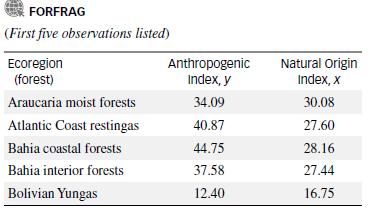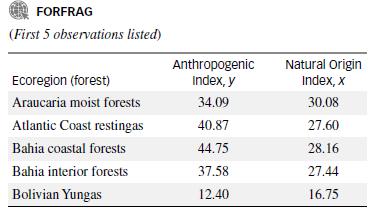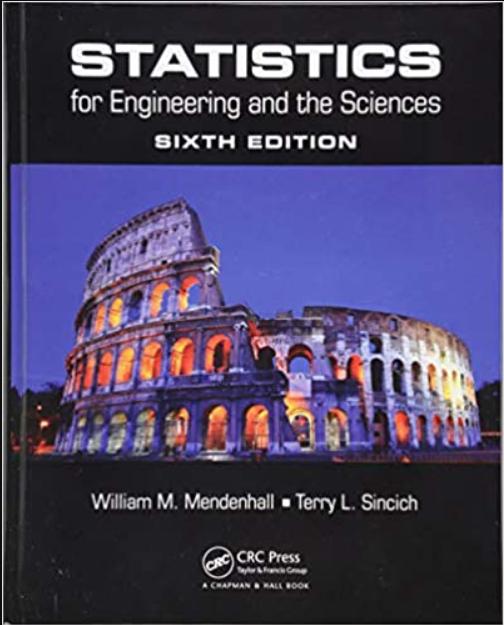Refer to the Conservation Ecology (Dec. 2003) study of the causes of fragmentation for 54 South American
Question:
Refer to the Conservation Ecology (Dec. 2003) study of the causes of fragmentation for 54 South American forests, Exercise 10.39. Recall that ecologists have developed two fragmentation indices for each forest—one index for anthropogenic fragmentation (y) and one for fragmentation from natural causes (x). Data on these two indices for all 54 forests are saved in the FORFRAG file. (The first five observations are reproduced in the table. In Exercise 10.33 you fit a simple linear model to the data, after removing data for the three forests with the largest anthropogenic indices. Now consider a quadratic model for E(y).
a. Fit the quadratic model to all the data using the method of least–squares. Give the equation of the least-squares prediction equation.
b. Interpret the estimates of β0, β1, and β2 in the context of the problem.
c. Is there sufficient evidence of a curvilinear relationship between natural origin index (x) and anthropogenic index (y)? Test using α = .05.

Data from Exercise 10.39
Ecologists classify the cause of forest fragmentation as either anthropogenic (i.e., due to human development activities such as road construction or logging) or natural in origin (e.g., due to wetlands or wildfire). Conservation Ecology (Dec. 2003) published an article on the causes of fragmentation for 54 South American forests. Using advanced high-resolution satellite imagery, the researchers developed two fragmentation indices for each forest—one index for anthropogenic fragmentation and one for fragmentation from natural causes. The values of these two indices (where higher values indicate more fragmentation) for 5 of the forests in the sample are shown in the accompanying table. The data for all 54 forests are saved in the FORFRAG file.

Step by Step Answer:

Statistics For Engineering And The Sciences
ISBN: 9781498728850
6th Edition
Authors: William M. Mendenhall, Terry L. Sincich





